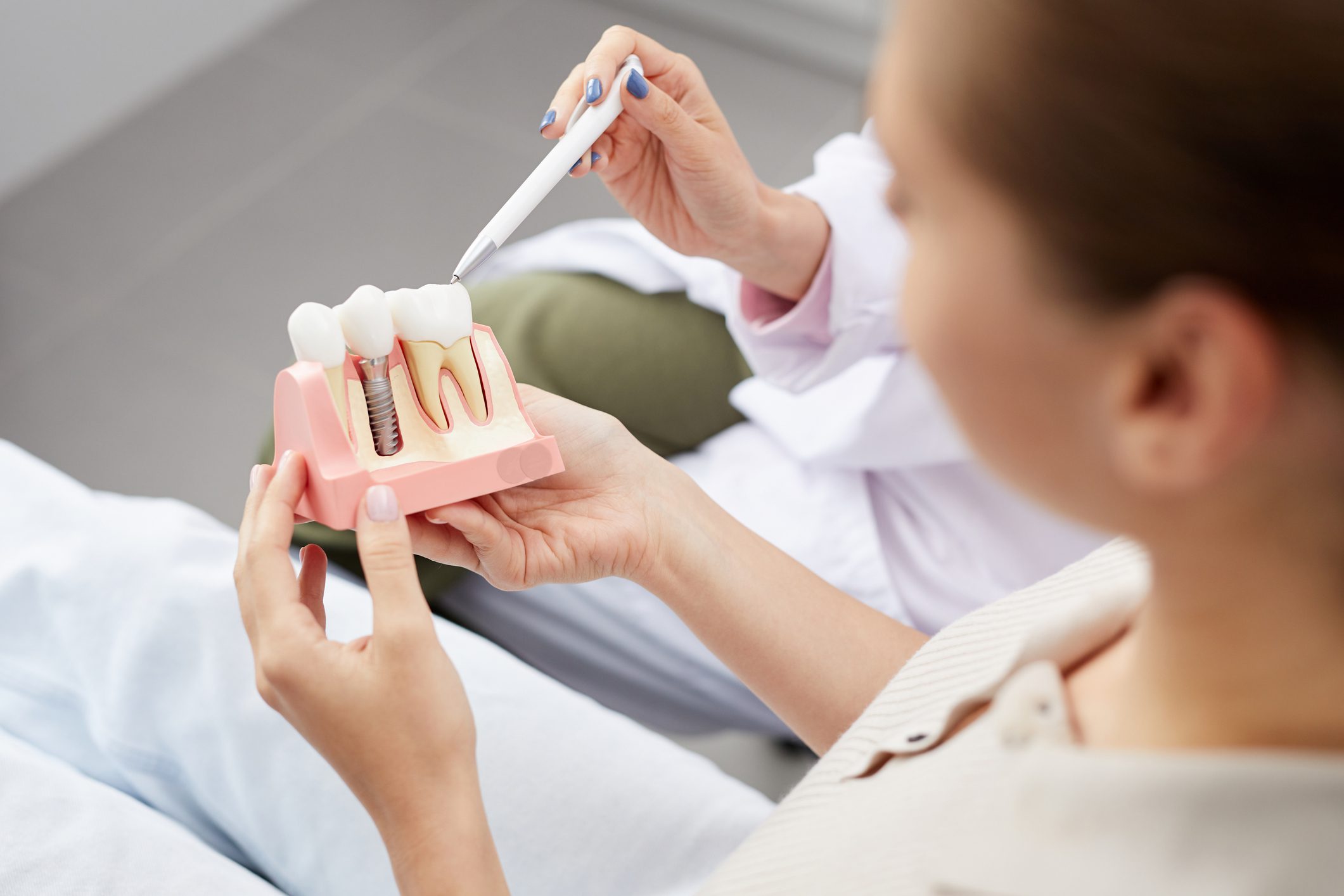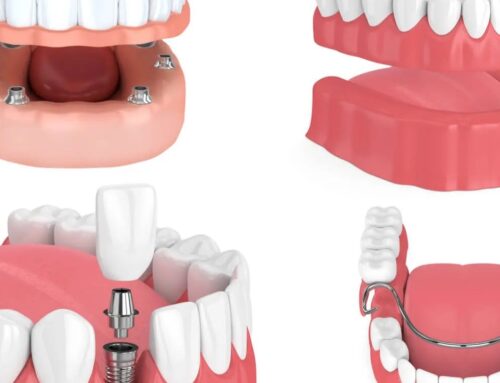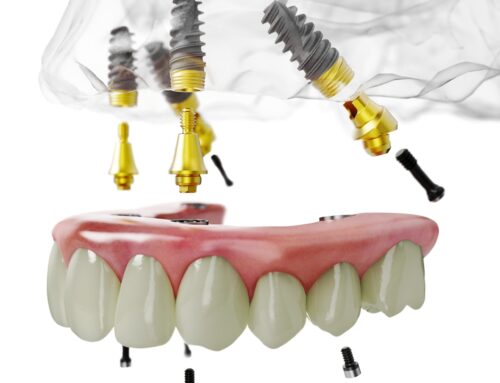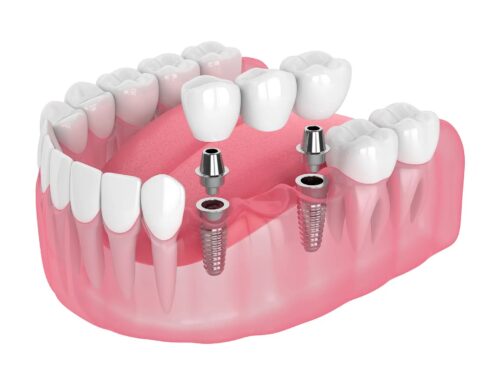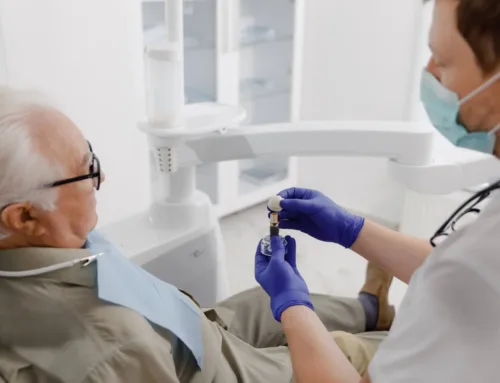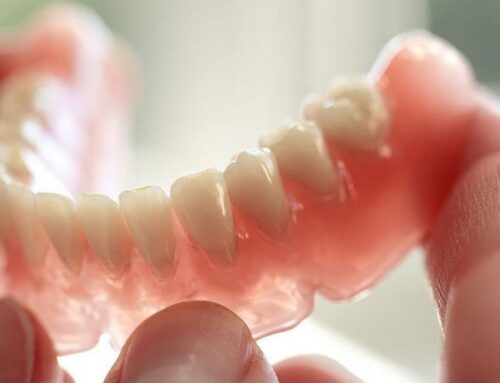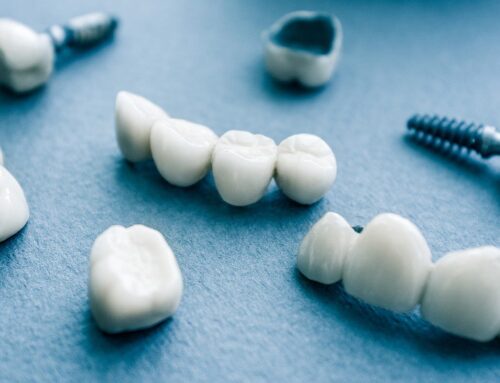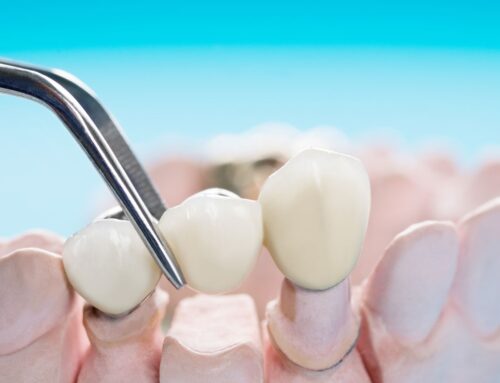Types of Dental Implants and What They Are Used For
Dental implants are a proven way to replace missing teeth. Most patients find them to be comfortable and painless and enjoy how they enable them to once again bite, chew and swallow with relative ease.
Deciding on which implant to use isn’t always straightforward. A dentist must assess a case and choose the right type based on a patient’s need. There are several factors that they must consider, including how many teeth are missing, the strength of the jawbone and the health of the surrounding teeth, to name a few.
Each implant is designed for a specific use. If you need to replace multiple teeth, then you might need the All-on-4 solution or implant supported dentures whereas a crown might be the best option for a chipped tooth. It’s about finding the right equipment for your oral health, comfort, budget and lifestyle.
To start, let’s look at the different types of implants including the All-on-Four system, implant supported dentures, bridges and crowns. For each, we’ll explore which scenarios they are ideally suited for.
Let’s Clarify what a Dental Implant is
A dental implant is a metal frame that is surgically attached to a jawbone. It’s an apparatus designed to hold an artificial tooth securely in place. The artificial tooth replaces the missing one, filling in the gap and preventing issues like overcrowding or shifting.
Dentures were one of the earliest methods to replace missing teeth. They were uncomfortable and made it hard for patients to speak clearly or chew food. They also required quite a bit of maintenance and were susceptible to breaking. For some patients, implants have made dentures less cumbersome to wear or have even replaced them entirely.
The benefits to modern implants include keeping dentures and bridges in place, preventing additional tooth or bone loss and negating facial collapse. Furthermore, they are cavity resistant and help replacement teeth feel natural in one’s mouth.
Dental implants have other benefits:
- Can enhance speech and, more specifically, pronunciation
- Offer protection for your jawbones and teeth
- Durable and cost-effective
- Do not require any special cleaning or maintenance
If you need a dental implant than it’s best to not delay. Visit your dentist so they can examine your mouth, determine which implant makes the most sense and begin charting a proper and effective course of treatment.
Living with Missing Teeth
Teeth serve an important function in one’s mouth and can contribute to overall health. Because teeth can shift to fill empty spaces, missing a single tooth can cause a misalignment. This can result in crooked teeth and make keeping your oral hygiene routine more difficult.
Additionally, an empty space in a row of teeth can cause neighbouring teeth to erupt. This is due to a tooth overcompensating to fill a gap because there isn’t another tooth present to stop it.
Other consequences are bone resorption or a situation where gums and jaws deteriorate causing cheeks to appear sunken or sullen and making you look older.
Dental implants have come a long way over the years and no matter your situation a solution should exist. Your dentist’s role is to ensure you don’t have to live with any of these symptoms for an extended period.
All-on-4 Implants
All-on-4 is a proven and adequate way to replace multiple missing teeth. This system offers exceptional functionality and can withstand the rigors of chewing and biting.
People with missing teeth or advanced gum disease usually suffer some level of bone loss. All-on-4 is a unique system as it makes the most of the available bone in a patient’s jaw to insert the implants. It’s designed to maximize the bone to circumvent the need for additional procedures like a bone graft, which can be pricy and painful.
The process includes using computer technology to analyze a patient’s jawbone to find the best areas to insert the implants. Once they are in place, the artificial teeth can be attached. The surgery is considered to be routine and usually takes about 90 minutes. Keep in mind that each case is different, and your dentist will discuss the specifics of your surgery when the time comes.
The last step involves your dentist crafting a post-treatment plan to make sure you heal without incident. Post-surgery, patients can usually drink right away but are advised to eat soft foods for three months. They must attend checkups and cleanings every 6-12 months to make sure everything is in order.
This procedure has garnered a 98% success rate over the last decade. It’s often recommended as an alternative to traditional dentures especially for patients with decreased bone mass in their jaw.
Implant Supported Dentures
Implant supported dentures innovatively combine the functionality of a removable denture with the stability of a dental implant. It allows dentists or specialists to adjust the degree of the dentures, helping avoid the use of specially designed tools.
Implant supported dentures minimize the painful sores and looseness associated with traditional dentures. They don’t require patients to use denture paste and some don’t even have a plate to cover the roof of the mouth. They are painless, effective and the result is usually greater comfort and increased confidence.
This treatment is often recommended for patients who require dentures and have enough bone support.
Bridges
A dental bridge can close the gap caused by a missing tooth and is used when multiple teeth are missing. Bridges can maintain a patient’s facial shape and help them achieve a healthy bite by keeping artificial teeth where they need to be. Furthermore, these fake teeth look and feel natural.
Bridges can restore a smile by distributing the force exerted by biting and chewing, preventing real teeth from shifting into gaps. They are bonded to real teeth and made from either gold, alloy, porcelain or some combination of these materials.
A dentist will typically recommend that a patient has a bridge inserted when the missing teeth are on one side of the mouth or if there aren’t too many teeth to replace.
Dental Crowns
Dental crowns are designed to improve the strength, shape and functionality of a tooth. This restorative procedure is often used to repair teeth that are broken, worn down or have been impacted by tooth decay.
Think of a crown as a cap that is placed onto a tooth and provides a new outer surface to protect it from bacteria or other harmful elements. Crowns are durable, made from porcelain or metal or a combination of the two. Aesthetically, patients often prefer porcelain crowns because their appearance closely resemble that of natural teeth. If a tooth is lacking sufficient strength to hold a filling, then a patient might require a partial crown.
Crowns are created and sculpted by dental laboratory technicians based on a patient’s unique impression. The technician will use the impression to assess a patient’s bite and jaw movements. The goal is to make sure a crown will not impede biting, chewing or swallowing and help a patient achieve full mouth function.
Book an Appointment Today!
If you need a dental implant, simply fill out this short form to book your free, no-obligation consultation with a member of our team of dental professionals. We’ll gladly discuss your case and answer any questions you might have.
Appointment Request
If you’re interested in any of our procedures, and would like to meet with one of our dentists to discuss options, costs and get additional information, complete this short form and we’ll give you a call to arrange for a no-obligation appointment at our Barrie clinic.
